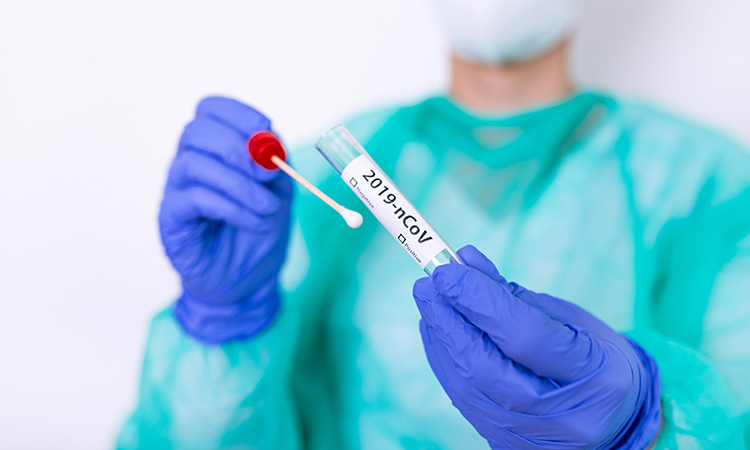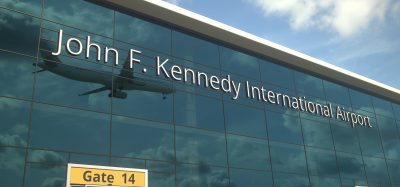ACI World and IATA reinforce urgent call for COVID-19 testing for air travel
- Like
- Digg
- Del
- Tumblr
- VKontakte
- Buffer
- Love This
- Odnoklassniki
- Meneame
- Blogger
- Amazon
- Yahoo Mail
- Gmail
- AOL
- Newsvine
- HackerNews
- Evernote
- MySpace
- Mail.ru
- Viadeo
- Line
- Comments
- Yummly
- SMS
- Viber
- Telegram
- Subscribe
- Skype
- Facebook Messenger
- Kakao
- LiveJournal
- Yammer
- Edgar
- Fintel
- Mix
- Instapaper
- Copy Link
Posted: 19 October 2020 | International Airport Review | No comments yet
The two aviation bodies have outlined that implementing an internationally agreed approach to testing will support the recovery of air travel.


Airports Council International (ACI) World and the International Air Transport Association (IATA) have reinforced the urgent call for governments to use COVID-19 testing as a means to safely re-open borders and re-establish global connectivity and to prevent the systemic collapse of the aviation industry with non-debt generating financial support.
The dual measures would protect countries from the importation of COVID-19 cases, avert an employment crisis in the travel and tourism sector and ensure that the critical aviation structure remains viable and able to support the economic and social benefits on which the world relies.
The Air Transport Action Group (ATAG) estimates that 46 million jobs are at risk because of the loss of connectivity caused by the COVID-19 crisis. The vast majority of these (41.2 million jobs) are in the travel and tourism sector, which relies on aviation. The remainder (4.8 million jobs) are spread across direct employment in aviation, including airports and airlines.
The viability of the airline sector to support employment is being challenged by the severe and prolonged fall in business:
- ACI estimates that the airport industry will suffer a 60 per cent reduction in revenues, reaching an unprecedented $104.5 billion loss
- IATA estimates that airline revenues will be down by at least 50 per cent ($419 billion compared to $838 billion in 2019).
Safely re-opening borders without quarantine by using a coordinated approach to testing would boost the entire economy and be a revenue lifeline for airlines and airports. ACI and IATA have called on the International Civil Aviation Organisation (ICAO) Council’s Aviation Recovery Task Force (CART) to provide an internationally agreed and recognised approach to testing that can be adopted at a national level.
Governments are also urged to address the devastating impact of border closures and other government-imposed travel restrictions by supporting aviation’s viability through direct financial support that:
- Protects jobs and operations
- Does not increase debt levels
- Minimises default on debt and credit losses.
ACI World‘s Director General, Luis Felipe de Oliveira, said: “The COVID-19 pandemic remains an existential crisis and airports, airlines and their commercial partners need direct and swift financial assistance to protect essential operations and jobs. But such assistance is only one piece of the puzzle as the industry restarts and prepares to sustain continuing operations focused on the health and welfare of travellers, staff and the public. ACI and IATA are aligned in calling for urgent government action to introduce widespread and coordinated testing of passengers to enable quarantine requirements to be removed. Without this action, it is not an exaggeration that the industry is facing collapse.”
Alexandre de Juniac, IATA’s Director General and CEO, said: “We need action quickly. Large parts of the global air network have been severely ruptured for well over a half year. Job losses – inside and outside the industry – mount with each day that borders are closed. With each job lost, the recovery and impact on the broader economy becomes even more difficult. Momentum is building in support of testing to re-open borders. It’s the top operational priority. To make sure that we have a viable aviation sector at the end of this crisis, a second round of financial relief is unavoidable.”
In accordance with World Health Organization’s (WHO) International Health Regulations, ACI and IATA are united in the belief that costs related to public health measures aimed at mitigating the spread of communicable diseases, including the introduction of a coordinated approach to testing, should be borne by national governments.
Related topics
Aeronautical revenue, Airport crisis management, COVID-19, Economy, Passenger experience and seamless travel, Passenger volumes, Regulation and Legislation, Safety
Related organisations
Airports Council International (ACI World), International Air Transport Association (IATA), International Civil Aviation Organization (ICAO)


















